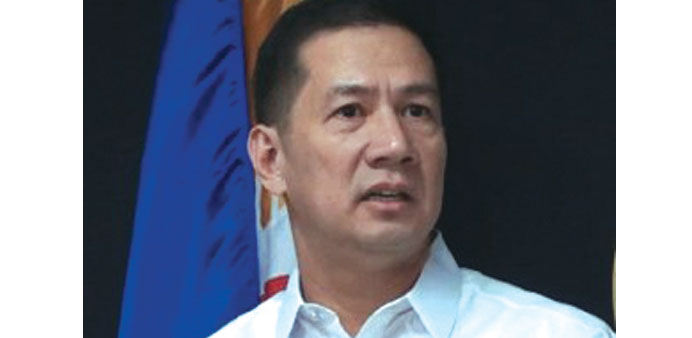“The result came very lately. There has been no discussion yet on how the results of the survey will change our policy”
By Bernice Camille V Bauzon/Manila
The Department of Foreign Affairs (DFA) has not yet made any change in policies based on the results of the Social Weather Station (SWS) survey that showed Filipinos’ positive response to Manila’s actions against China’s intrusive behaviour in the West Philippine Sea (South China Sea).
Raul Hernandez, Foreign Affairs spokesman, said the department was “encouraged” and “empowered” by the results of the survey, but he admitted that he was unsure how the results will affect their policies.
“The result came very lately. There has been no discussion yet on how the results of the survey will change our policy,” he said.
According to the “Survey on Selected Foreign Relations Issues” commissioned by the DFA and conducted from December 11 to 16 last year, 73% are aware of the dispute between Manila and Beijing while 68% are aware that the region holds vast amounts of mineral and oil deposits.
Furthermore, 61% are also aware that the Philippines filed a case against China before the United Nations and a smaller 56% are aware that China has been strengthening its military forces in the region.
Hernandez said the survey is an indication of whether or not there is public support for the Philippines’ move to bring the case to arbitration.
Based on the survey, 82% either “strongly agree” or “somewhat agree” to Manila’s filing of an arbitration case before the International Tribunal of the Law of the Sea (Itlos).
The Philippines filed the case on January 22 last year in response to what it perceived as China’s increasing aggressiveness in the region. Beijing rejected the invitation on February 19 last year.
Of the respondents, 8% are “undecided,” 5% “somewhat disagree” and 3% “strongly disagree.”
On the question of whether the Philippines should seek the help of others to counter China’s increasing military movements in the region, 80% of the respondents “strongly/somewhat agree,” 8% are “undecided” and 9% are “somewhat/strongly disagree.”
Ninety-three percent of Filipinos also agreed that the Philippines “should defend the territory and natural resources in the West Philippine Sea through lawful means.”
Two percent said “no” while the remaining 5% said “don’t know.”
The survey also asked the Filipinos if the international law “is a great equaliser against countries that are stronger militarily and economically.”
On this question, 77% answered “yes,” 15% “no” and 8% answered “don’t know.”
Based on the survey, Filipinos in the National Capital Region (NCR) and those who finished college or took up postgraduate courses are more bound to support the Philippines in its case against China.
They are also in better agreement with the Philippines with regards to its decision to file the arbitration case against the Asian economic powerhouse.
Hernandez said during the height of the conflict with China, the department thought there is a need “to find out exactly what was the pulse of the people as to the issue of the West Philippine Sea.”
“That is why there are more questions about West Philippine Sea issues than the other two pillars (of Philippine foreign policy),” he said.
The three pillars of foreign policy are the preservation of national security, the promotion of economic security and the protection of overseas Filipino workers (OFWs).
The department said the survey was commissioned to help them further fulfill its mandate and enhance public diplomacy. But the survey is observably focused on the country’s issue with China’s growing aggression in the region.
“We wanted more questions for WPS because (there are) different factors that have to be known and learned from that issue,” Hernandez said.
The official said the survey questions especially formulated for the two other pillars (economic security and protection of OFWs) can follow through.
“Now, we found out that the people overwhelmingly support the rule of law approach of the government in the WPS issue and that they are behind and they strongly and fully support the arbitration case we have filed against China,” he added.- Manila Times

